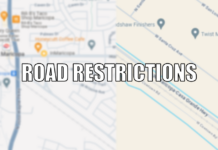

Today’s news reports have been less than encouraging for exiting a globally traumatic event, such as the COVID crisis, to cope with. While feelings of being overwhelmed, anxious or sad can make us uncomfortable, these emotions are a natural response to stressors.
Just as we began to believe our lives may get back to normal (if we know what normal is, anymore) we see Russia’s continuing invasion of Ukraine. This news is distressing, which impacts our routines, thoughts and behaviors daily. All ages are impacted with feelings of helplessness and anxiety.
We all need to learn ways to manage the anxiety (anticipation of future threat) and fear (emotional response to a real or perceived imminent threat) we are feeling right now:
- Coping has many responses, starting with the bodily response which helps us identify how we process the news.
- Observe physically, internally or reactively how your day goes and then observe other’s responses who are close to you. If eating habits, sleep patterns or reactivity to stress has changed, then it’s time to change something or incorporate ways to cope.
- The brain responds to survive with fight, flight or freeze from the primitive brain stem at the base of the neck. Our brain does not know whether we are seeing and hearing the information, or if it is actually happening to us. With this information, our brain begins to send signals of alarm-releasing hormones to act.
- Hormones trigger the bodily response by increased heart rate, shallow breathing, with the heart pumping blood in around the major organs leaving the extremities cold, clammy and possibly turning blue. These are symptoms of anxiety or heightened anxiety, producing a panic attack and the automatic response to survive.
- Stress triggers the engagement of our five senses: sight, touch, hearing, smell and taste. When our body is triggered to act in survival mode, each of the senses are heightened to a razor-sharp awareness and increases our strength to act.
- Long-term memory is promoted by repetition, repeat to remember at least three times, or a significant emotional event such as the shock of an accident or event like the World Trade Center attack.
- Post-traumatic stress disorder, or PTSD, occurs when an event happens outside the realm of normal. Anyone would have a similar response to the shock and horror of the event. After trauma the memory has ensconced a visual of the event in the mind’s eye or completely blocked it out because the horror is too difficult to process to memory. But consciously or subconsciously we remember when the senses evoke memory like the original event. Healing from this level of anxiety may require therapeutic intervention from a qualified counselor.
How to cope with stress
Self-care is important and learning ways to reduce anxiety is important but worrying about the news will not take it away. Recent stories have shown families in Ukraine are fleeing the risk (flight some are fighting) and especially children (adults, too) are no longer crying in response to the fear. The decreasing emotional response is indicative of freeze due to the threat war brings.
We can, however, control how we think and respond to ourselves and others. Begin by checking in with yourself and others close to you, then take steps on what you can control. Keep things in perspective.
- Is this in my control? Yes, then do something by changing how we react or responding in a positive way. We can donate items needed such as clothing, food, and appropriate medications. Check with the Red Cross or local churches to learn who is taking donations and needs. I believe in a higher power and I pray knowing there is spirit beyond me answering. We are all spiritual and prayer reduces anxiety.
- Check self-talk. I can…. This is a normal reaction. Thinking about what you are unable to effect increases anxiety. If you continue to feel overwhelmed, talk to someone. Start with those close to you or seek out a professional.
- Develop a coping plan following the 3-3-3 Rule.
Begin by checking your breathing. Focus on the lungs: breathe in and out slowly. Think breathe deep to fill the entire lungs and then think. Relax to release the air all while focusing on the lungs. As your breathing returns to normal so will the heartbeat and muscles begin to relax. If focus is lost, think again focus on the breath.
Look around and name three things you see. Am I safe? If not, move to safety.
Name three sounds you hear. Focus your senses.
Move three parts of your body. I am well and can cope.
- Prioritize your emotional well-being. It does not mean we do not care about what is happening. We can adapt to the news and limit our response to the negativity.
- Minimize social media and focus on programs that give straight facts, especially prior to bed. Focus on social groups that promote supportive events. Enjoy laughter and friends to reduce the tension.
We are in heartbreaking times and the human experience lends to empathy. Ask, “Where do I have control or choices even in the smallest way.” Follow that thought.




![City gave new manager big low-interest home loan City Manager Ben Bitter speaks during a Chamber of Commerce event at Global Water Resources on April 11, 2024. Bitter discussed the current state of economic development in Maricopa, as well as hinting at lowering property tax rates again. [Monica D. Spencer]](https://www.inmaricopa.com/wp-content/uploads/2024/04/spencer-041124-ben-bitter-chamber-property-taxes-web-218x150.jpg)

![3 things to know about the new city budget Vice Mayor Amber Liermann and Councilmember Eric Goettl review parts of the city's 2024 operational budget with Mayor Nancy Smith on April 24, 2024. [Monica D. Spencer]](https://www.inmaricopa.com/wp-content/uploads/2024/04/spencer-042424-preliminary-budget-meeting-web-218x150.jpg)





![Alleged car thief released without charges Phoenix police stop a stolen vehicle on April 20, 2024. [Facebook]](https://www.inmaricopa.com/wp-content/uploads/2024/04/IMG_5040-218x150.jpg)




![City gave new manager big low-interest home loan City Manager Ben Bitter speaks during a Chamber of Commerce event at Global Water Resources on April 11, 2024. Bitter discussed the current state of economic development in Maricopa, as well as hinting at lowering property tax rates again. [Monica D. Spencer]](https://www.inmaricopa.com/wp-content/uploads/2024/04/spencer-041124-ben-bitter-chamber-property-taxes-web-100x70.jpg)